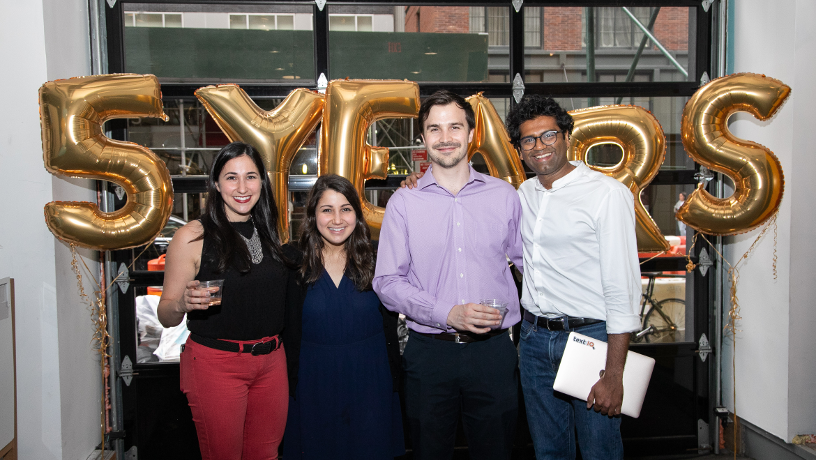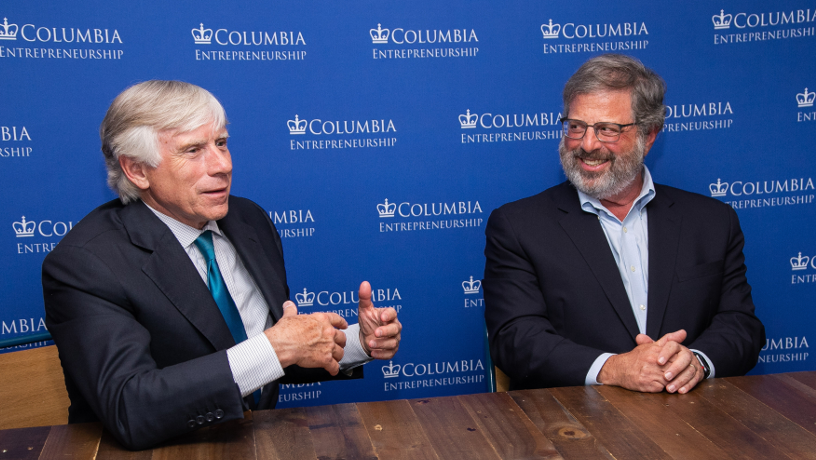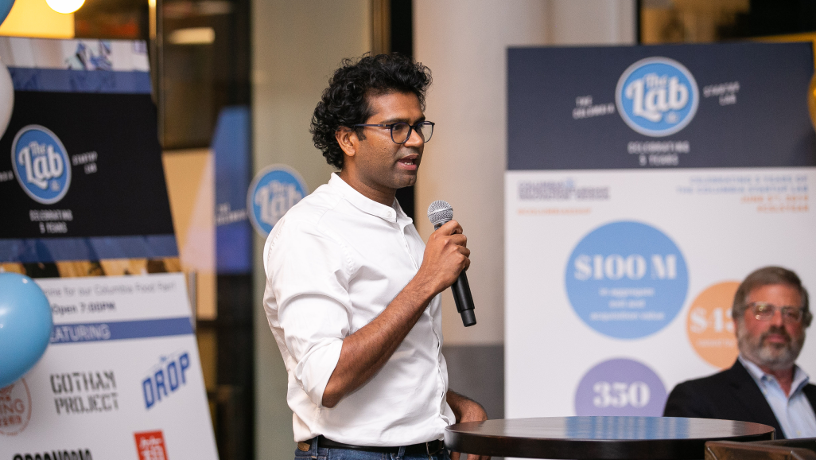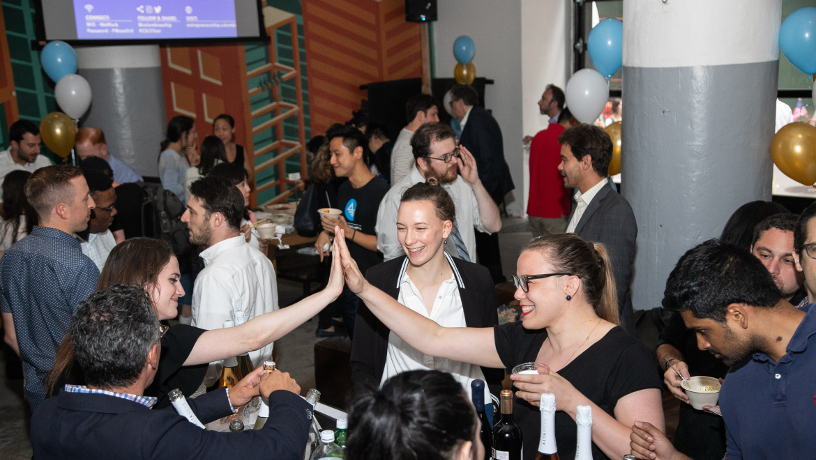Columbia Startup Lab Marks Five Years of Innovation

PAL by Project Playdate Founder Amanda Raposo ‘17BUS, Columbia Startup Lab Manager Daniella Raposo, Columbia Startup Lab Director Nat Kelner, Founder of Text IQ Apoorv Agarwal ‘16SEAS.

Columbia President Lee C. Bollinger with Columbia Entrepreneurship, Innovation, and Design founder Richard Witten, rehashing the journey of the Columbia Startup Lab. It now boasts 4 exits with an aggregate deal size of $100M and $43 in raised funding.

Founder of Text IQ Apoorv Agarwal ‘16SEAS.

The Columbia Startup Lab celebrates its 5 year milestone. Administered by Columbia Entrepreneurship, Innovation, and Design and housed in WeWork Soho West, it has served as headquarters to a total of 250 startups and 350 members.
For students with a novel idea, building a great platform or tool can seem like the easy part. It’s what comes next that can be a bit of a mystery.
“At the time I was graduating, it was absolutely not obvious how you take that liberal arts computer science project and move it into business,” recalled Apoorv Agarwal MS’08 PhD’14.
As a newly minted Columbia engineer, Agarwal had developed technology that could tease out a wealth of information from unstructured sources of data, such as classic British novels. At the time, he had no idea that within five years, he would translate those insights into in the up-and-coming AI company, Text IQ.
“Today, we sell to very large enterprises—typically Fortune 500 companies—with legal, compliance and privacy departments to help them identify all the micro-sensitive information in their emails and text messages,” said Agarwal, the company’s co-founder and CEO.
To make that jump from engineer to entrepreneur, Agarwal spent a pivotal year at the Columbia Startup Lab, a unique partnership between Columbia Engineering, the college, and the schools of business, law, and international and public affairs. To date, the Startup Lab has fostered some 350 entrepreneurs like Agarwal in its WeWork-affiliated space located in SoHo. Together, these early-stage enterprises have raised over $43 million in investment and generated over $100 million of exit and acquisition value.
What is represented here is not only about entrepreneurship, it’s about what a modern, major research university looks like in the contemporary world.
“It’s been a crazy ride and the Columbia Startup Lab gave us that jumpstart,” Agarwal said, reflecting on his time as a member of the group’s third cohort in 2016-2017. “Recruiting became very easy. When hiring an engineer that Google and Facebook wanted to poach, we could offer a great environment and a great workspace.”
Those kinds of perks paid invaluable dividends—recently, Text IQ was named to the AI 100, a prestigious list of the most promising privately-held artificial intelligence companies in the world. This week, the company announced that it has raised $12.6 million in series A funding.
After five successful years nurturing entrepreneurs from fintech to health care, the Lab has many such stories to tell. Earlier this month, faculty, friends, and members from more than 250 alumni startups came together to take stock of their proud legacy of innovation and enterprise.
“It’s really wild to see everybody out here, and to remember what this place looked like six years ago,” said Richard Witten ’75CC, special adviser to the president of Columbia University and founder of Columbia Entrepreneurship, Innovation and Design. “This place, this space, and the people who occupy it have done extraordinary things for the entrepreneurship community in New York, for Columbia University, and for you who have taken advantage of this very special resource.”
Among the speakers at the June 5 celebration were also Dean Merit Janow of the School of International and Public Affairs and an array of former and current Lab members. Their contributions illustrate how the initiative works to serve the University’s larger mission, said President Lee Bollinger.
“What is represented here is not only about entrepreneurship, it’s about what a modern, major research university looks like in the contemporary world,” Bollinger told the crowd. “We are trying in all kinds of ways to have a university that is [not only] profoundly dedicated to new knowledge, research, scholarship and teaching, but also is actively engaged with the world.”
